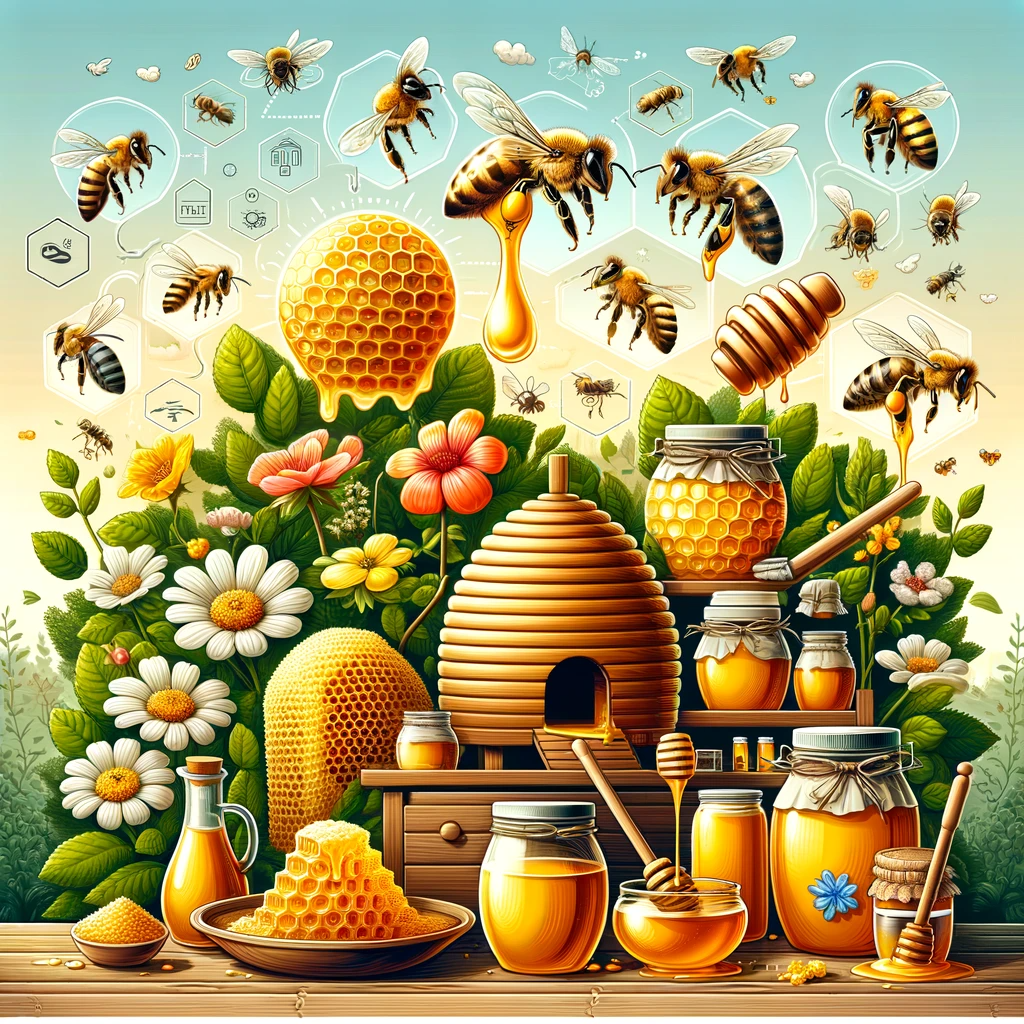Introduction:
When it comes to sweetening your food and beverages, you have several options, but two of the most popular choices are honey and sugar. Both honey and sugar are widely used sweeteners, but they have distinct differences in terms of taste, nutritional value, and health benefits. In this article, we will explore the differences between honey and sugar, helping you make an informed choice for your culinary and dietary needs.
Honey: The Natural Sweetener
Honey is a natural sweetener produced by honeybees from the nectar of flowers. It has been used for centuries as a sweetening agent and for its potential health benefits. Here are some key points to consider about honey:
- Origins and Production:
- Honey is a natural product made by bees.
- Bees collect nectar from flowers and transform it into honey through a process of regurgitation and evaporation.
- Taste:
- Honey offers a distinct and varied flavor profile, depending on the types of flowers visited by bees.
- It can be floral, fruity, or even have herbal undertones.
- Nutritional Value:
- Honey contains essential nutrients such as vitamins, minerals, and antioxidants.
- It has a lower glycemic index compared to sugar, making it a better option for regulating blood sugar levels.
- Health Benefits:
- Honey has antimicrobial and anti-inflammatory properties.
- It can soothe a sore throat and cough when mixed with warm water and lemon.
- Some studies suggest that consuming honey may aid in allergy relief.
Sugar: The Refined Sweetener
Sugar, also known as table sugar or sucrose, is a refined sweetener derived from sugar cane or sugar beets. It is a common ingredient in many processed foods and beverages. Let’s delve into the specifics of sugar:
- Origins and Production:
- Sugar is extracted from sugar cane or sugar beets through a series of refining processes.
- It is heavily processed and purified to obtain pure sucrose.
- Taste:
- Sugar provides a consistent sweet taste with no variations in flavor.
- It is often described as a simple sweetness that blends well with a wide range of recipes.
- Nutritional Value:
- Sugar is essentially empty calories, providing only energy without significant nutrients.
- It has a high glycemic index, leading to rapid spikes in blood sugar levels when consumed in excess.
- Health Concerns:
- Excessive sugar consumption is linked to various health issues, including obesity, diabetes, and dental problems.
- Refined sugar offers no unique health benefits and can contribute to empty calorie intake.
Which is Better for You?
The choice between honey and sugar ultimately depends on your specific needs and preferences. Here are some considerations to help you decide:
- Flavor: If you prefer a natural and diverse flavor, honey may be your go-to sweetener. Sugar provides a consistent sweetness but lacks the complexity of honey’s taste.
- Nutrition: Honey contains beneficial nutrients and antioxidants, making it a healthier choice when used in moderation. Sugar offers no nutritional benefits and should be consumed sparingly.
- Health Goals: If you are looking to manage your blood sugar levels or reduce empty calorie intake, honey is a better option due to its lower glycemic index and potential health benefits.
- Recipe Compatibility: Consider the specific recipe you are making. Some recipes may work better with honey, while others may require the neutrality of sugar.
Conclusion
In the battle of honey vs. sugar, both sweeteners have their merits and drawbacks. While honey stands out for its natural origins, diverse flavor, and potential health benefits, sugar remains a staple for its consistent sweetness. When choosing between the two, prioritize your taste preferences, nutritional needs, and health goals. Remember that moderation is key, as excessive consumption of any sweetener can have adverse effects on your health.
